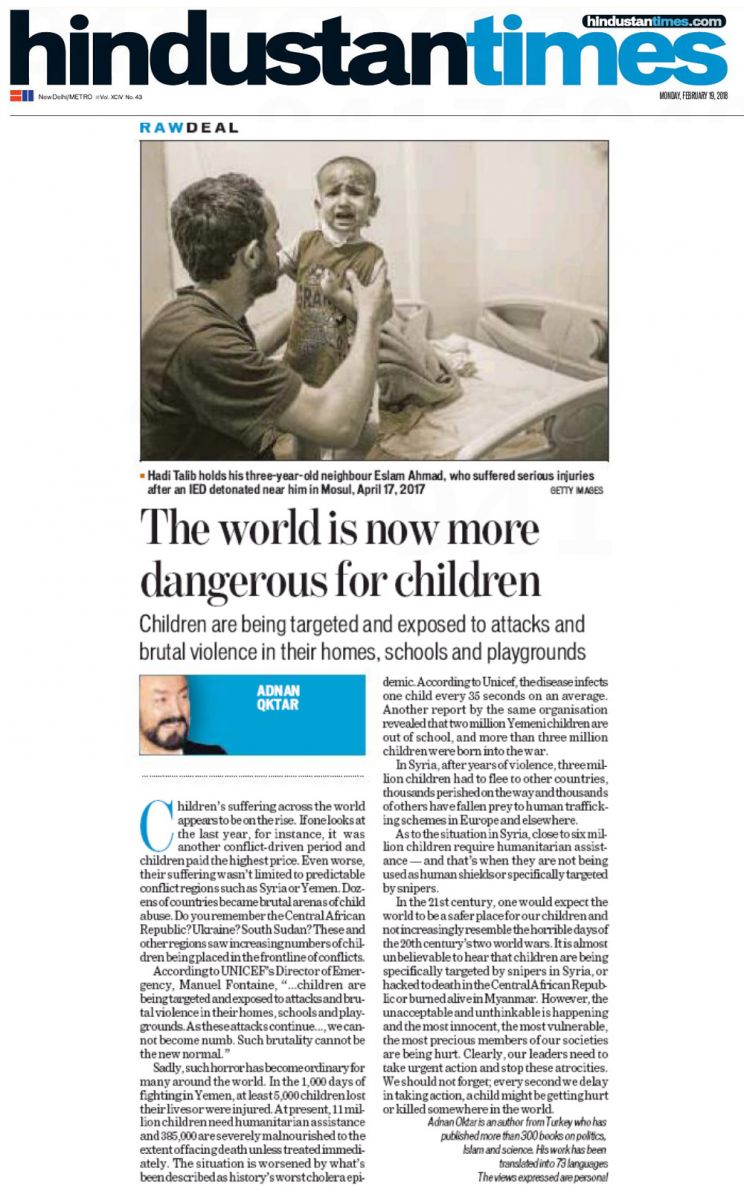
Children’s suffering across the world appears to be on the rise. If one looks at the last year, for instance, it was another conflict-driven year and children paid the highest price. Even worse, their suffering wasn’t limited to predictable conflict regions such as Syria or Yemen. Dozens of countries became brutal arenas of child abuse. Do you remember the Central African Republic? Ukraine? South Sudan? These and many other regions saw increasing numbers of children being placed in the frontline of conflicts.
According to UNICEF’s Director of Emergency, Manuel Fontaine, “...children are being targeted and exposed to attacks and brutal violence in their homes, schools and playgrounds. As these attacks continue..., we cannot become numb. Such brutality cannot be the new normal.”
Sadly, such horror has become ordinary for many around the world. In the 1,000 days of fighting in Yemen, at least 5,000 children lost their lives or were injured. At the moment, 11 million children are in need of humanitarian assistance and 385,000 are severely malnourished to the extent of facing death unless treated immediately. The situation is worsened by what’s been described as history’s worst cholera epidemic. According to Unicef, the disease infects one child every 35 seconds on an average. Another report by the same organisation revealed that two million Yemeni children are out of school, and more than three million children were born into the war.
In Syria, after years of violence, three million children had to flee to other countries, thousands perished on the way and thousands of others have fallen prey to human trafficking schemes in Europe and elsewhere. As to the situation in Syria, close to six million children require humanitarian assistance — and that’s when they are not being used as human shields or targeted specifically by snipers. Children of many other countries went through similar ordeals including Afghanistan, Eastern Ukraine, the Central African Republic (CAR), Democratic Republic of the Congo, South Sudan, Somalia and Myanmar.
In the 21st century, one would expect the world to be a safer place for our children and not increasingly resemble the horrible days of the 20th century’s two world wars. It is almost unbelievable to hear that children are being specifically targeted by snipers in Syria, or hacked to death in the CAR or burned alive in Myanmar. However, the unacceptable and unthinkable is happening and the most innocent, the most vulnerable, the most precious members of our societies are being hurt. Clearly, our leaders need to take urgent action and stop these atrocities. We should not forget; every second we delay in taking action, a child might be getting hurt or killed somewhere in the world.
0 comments:
Post a Comment